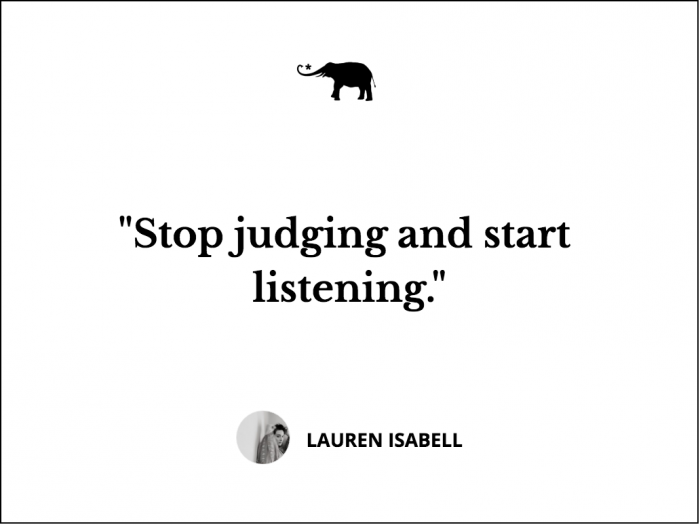My entire family has experienced some degree of trauma from having a loved one with a mental illness.
A lot of people can’t conceive what it is like if they do not go through the motions or experience firsthand the extreme ups and downs that having a mental illness creates.
When I say “ups and downs,” I mean grief, some semblance of normal, then more grief, fear, loss, and happiness when they’re functioning well on a myriad of medications, and then loss once again. My brother is still alive and he is here, yet I mourn him every day.
The memories I think about often of my brother and I go back to our childhood when he was more “normal.” I think of the times that he’d sneak into my bed when he was afraid, with his arms around his favorite stuffed animal, or the times we’d play and use our imaginations, pretending that his room was a jungle, or that we were fleeing from T. rex.
I also have a vivid memory of a time when we were being babysat and our parents were out. The babysitter went across the street to hang out with some friends, and my brother and I became afraid of being in the dark house alone. We both held each other and looked out the window, waiting for our parents to return.
That night, even though we weren’t in harm’s way, I felt like his protector. I still feel like his protector, even though the last 10 years of our lives have created a void in our relationship that I sometimes doubt is salvageable.
You see, my brother is otherworldly. Even the people closest to him, my parents and I, do not understand how his brain functions. We don’t understand how he’s feeling or why he’s thinking about the things he’s thinking of (it’s essentially hard to have a full spectrum of empathy with him).
The empathy we do have for him mostly encompasses the feeling of loneliness. He has been so utterly alone in his suffering for so long that he craves an escape from this world that I have never witnessed someone longing for quite like him.
My brother was diagnosed with attention deficit hyperactivity disorder (ADHD) when he was young. My mom tried to put him on medication, but she saw her child turn into a ghost of the son that she formerly knew. She didn’t like how he couldn’t express himself as he had been able to before and how he constantly felt ill from the side effects. So, she took him off.
As a result, he was the kid in school who was automatically labeled as the “problem child,” the one with too much energy, the one who was easily distracted, and the one who couldn’t focus in class and sit still long enough. He was an artist, though, and everyone saw his talent. Even the teachers who were annoyed with his antics couldn’t deny the fact that he was gifted. He was (and still is) excellent at drawing and painting and has made beautiful works of art.
I think that is what saves him during this time of struggle and ostracization: art and music. I was always embarrassed by him as a young girl; I was ashamed that I had a sibling who was “labeled,” and I tried to distance myself from him. In hindsight, I did this to protect myself, but I wish I could have a talk with my former young self and ask her to choose forgiveness instead of defensiveness.
As he grew older, the bullying got worse. He had some friends here and there, but friends who were wrong for him, friends who would engage in substance abuse, friends who didn’t truly care for him. He began to have hallucinations and anxiety in high school that we hadn’t seen before. He was starting to unravel at a pace that was beyond our comprehension.
My parents sent him to psychologists, therapists, even alternative doctors, and tried to receive support from the school as well. The school support didn’t come until my mom had hired an advocate. He was diagnosed as bipolar during this time, but also a possible schizoaffective disorder in his early 20s, and one professional questioned whether or not he may be on the autism spectrum as well.
As the years passed, he self-medicated with drugs and tried to manage on his own. He tried a plethora of medications on and off, some that gave him tremors or caused him pain. He was skeptical of others’ intentions and didn’t always have the wherewithal to acknowledge that people only wanted to “help him.”
They wanted to help him have a normal life—pursue his art, maintain friendships, possibly attend college, and not live in fear anymore. The one thing about mental illness, though, that people don’t always understand is that people who suffer aren’t always able to accept help. People think, well, they need to get help…why don’t they just get help? The truth is that, in their minds, they don’t think they need help. Part of the illness is literally not grasping their innate difference to how “normal” people live, how “normal” people feel, or how “normal” people get help.
Sometimes when my brother would be manic, we’d lose him altogether. He was unrecognizable. He was lost in a sea of despair, treading darkness we may never experience. He was in a storm of self-destruction and drowning in self-neglect while my parents and I were on the shore searching for life jackets. My parents have done everything humanly possible to save him.
I not only grieve the brother I once knew, but at times, my parents too. Our family was once intact, and now we’re all coping in our own ways with my brother’s suffering. We are looking at each other through cracked, stain glass windows, trying to remember what we used to look like healthy and whole.
I’ve seen my brother jumped on by six policemen at once who had attempted to get him to the hospital for stabilization; I’ve seen my brother try to jump out of a second-story window, and I’ve seen a bloodstained carpet. I’ve felt my heart beating so strongly out of my chest that I thought my rib cage would combust. This is the pain of a concerned sister.
I will never know the amount of pain my mother has felt, seeing the child that she grew in her womb suffer to such a degree. I can hug her, embrace her, and tell her it’s all going to work out somehow, but she carries him in her cells. His blood pumps through her veins. Her memories are just as sweet as mine, but they are enriched with a love so deep that the darkest moments my brother has endured only leave her with wider arms outstretched toward him.
What a lot of people don’t know, or don’t always see, is how purely loving my brother is. How all he wants is connection. How he strives, just like the rest of us, to feel heard and seen. He is one of the most insightful people I know, and he has helped me before in ways that no one else could. There is a beautiful person inside of his chaos—behind his illness.
So, what have I learned? I’ve learned that the community doesn’t always embrace those who are suffering from mental illness.
That you can have neighbors, social workers, school personnel, and even extended family pat you on the shoulder, give you a smile from afar, give you some papers to sign, or even drop you off at the hospital when in need. It tends to stop there, though.
Hospitals have turned my brother away countless times when he’s been at his sickest. Social workers feel they have their hands tied because of outdated or ridiculous laws that prevent them from doing all they can. School personnel see it as someone else’s issue. Or, unfortunately, people simply do not care. It’s not their friend; it’s not their family; it’s not their problem.
We have come across certain people who have given my parents and I compassion or who have made genuine attempts to help my brother. I think that overall, though, our society ignores those who suffer from mental illness. It’s uncomfortable. It’s inconvenient. It’s at times traumatizing. It’s fear-based.
I do, however, think that we need a greater sense of empathy. We need to instill this in our children, in our loved ones who may not suffer, and in our work training.
If you’re religious, it should be discussed during sermons; you should pray about it. If you’re avoidant, take a second look. If you lack understanding, educate yourself. If you’re apathetic, try to unlock the cages around your mind and your heart and release the “what if.” What if this was my son? What if this was my boyfriend? What if this was my best friend? What if this was my brother?
Stop judging and start listening.
~













Read 2 comments and reply